Ducky's Nightmare Postmortem, and Building Houses in Fog
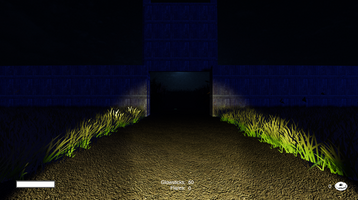
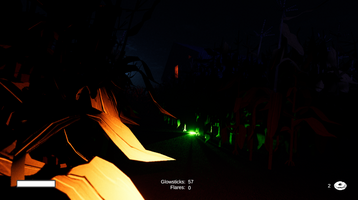
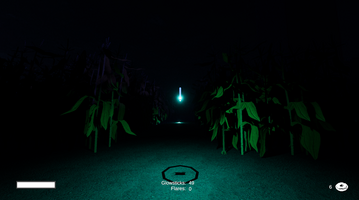
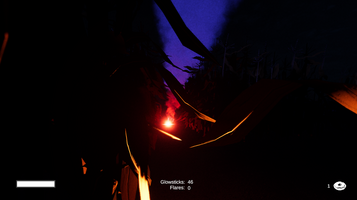
After two years, Ducky's Nightmare is finally released! It's been a long time coming, so thanks for the patience and feedback from those of you who kept up with the development for that long. What started out as an inside joke has eventually turned into a real game. I'm proud for sticking with it, even though it hasn't been the most stimulating development process. So, in typical postmortem fashion, I'll be reflecting on my successes and failures as a developer on all levels, including the conceptual and technical side of things, and what this project taught me.
The biggest success I think I accomplished with this project was finishing it. That may be the case with most projects, but especially so with this one, as I hope you'll see later. Being a developer most familiar with 2D, this game was my first step into 3D game development with Unity. I had to learn a lot of new skills, including learning C# and 3D modelling, and with the development time dragging on and on, it quickly felt like I was in over my head. But, as I went, I did manage to pick up the slack and became pretty comfortable with Blender and coding for Unity. With how inexperienced I was, it's honestly a miracle I finished something of this scale. Not only does that feel incredibly encouraging, but also immensely satisfying, having finally completed this thing I dreaded working on mere months ago.
For my next project, I'm more confident that whatever it requires me to do, be it make more detailed 3D environments or more advanced coding, I can handle it. I'm also going into my next project with all the 3D and coding experience that I've gained from this project, so I feel like I can build a more solid foundation. Starting this project, I had almost no prior 3D modelling or C# experience. But by the end, I was coding my own wind-swaying shaders and corn-placing algorithms, and modelling my own characters and props. So, at the very least, I have that over my past self.
However, that about does it in terms of successes. Overall, I would deem this project a massive failure. That's not just me being hard on myself (well, maybe a little bit,) and I feel I have a good reason for believing so. The most important reason this project failed is because I had no vision for it. There was no final destination plotted for this journey. And because of that, development meandered, I became disillusioned and frustrated, and I believe it ultimately diminished the quality of the final product. Honestly, I would call it short-sightedness and stubbornness. When I started this project, I didn't care where it ended up. It was just a funny game idea featuring my friends' joke characters, and so I just jumped in, without a clear goal in my mind. The symptoms of this problem started appearing almost instantly: low motivation, lack of progress, no ideas. Even tester feedback was useless, without being in service to something. Without an objective, I had nothing to work towards. I'm honestly having a hard time explaining it. It was like building a house without a blueprint, and then suddenly fog rolled in, and I couldn't tell what I was building on or what parts I was using. When I stepped back, the fog obscured my vision so I couldn't even see the outline of whatever mystery structure I was building. Then when the fog clears and it's not even a house anymore. I can't even tell what it is. That was the short-sightedness of this project: I didn't plan on the fog, even though there always is with game development.
The stubbornness comes from certain ideas I had about the artistic process. I won't go into too much detail, but basically I believed that game development was such an iterative process that I would eventually "find" the game, and this led to the feeling of never making progress. I had heard success stories of games like Ape Out and seen the "The Games That Designed Themselves" video by Game Maker's Toolkit, and assumed that if I just started fucking around, it would eventually come to me. And granted, it did. However, I was fundamentally misunderstanding the point of the GMT video, and the side effect of this was that it was very unsatisfying to work on the game. It didn't feel like I was getting one step closer to my artistic vision each day, making slow but sure incremental progress. It felt like I was slapping wood onto wood in a dense haze in a frustrated daze.
In combination, both my stubbornness and short-sightedness ended up causing me a lot of anxiety and doubt about this project and myself. Was this project even worth it anymore? Am I just a bad developer? Maybe this is just the wrong hobby for me? These thoughts swirled around in my head over the two years of this game's development, feeding off my insecurities and making progress even slower, which in turn fed back into the thoughts. I believe it was worth it in the end; if not for the final product, then purely for the experience I gained from it. In hindsight, the cause of these symptoms is obvious. How can you make progress if you've nothing to make progress towards? This is the fundamental lesson I learned from this project.
They say you learn more from your failures than your successes. In that case, this project's biggest failure taught me the biggest lesson: Game development is like building a house in fog. Without a blueprint, you will be lost. Even if it's just one word or idea, without something to orient yourself with, you will be lost. The vaguer the blueprint, the more I will have to play with the fog instead of fight it. Indeed, it's that fog which betrayed me when we first played together, but that was because we had no objective to our game. Next time, I will plan on the fog. Will one word be enough?
(EDIT) Thank you for reading this far. That said, please forgive my ramblings! Finishing my first "real" game has left me with a lot of complicated feelings that I feel are probably outside the scope of this one postmortem. The tone of this post might feel overly negative and self-critical, but that's only because I'm excited to implement what I've learned into my next project. I do think I focused too much on my failures, and blew them a little out of proportion (lol). I just thought that by analyzing my shortcomings, I would be ready to face them again in my next project.
I called Ducky's Nightmare a "massive failure," but how can you fail at something that has no goal? In reality, Ducky's Nightmare was just playing around, and that's okay. I didn't really have a goal in mind, but that's not necessary in pointless play. Honestly, I can't imagine a goal for Ducky's Nightmare other than just to "exist." And, for what it's worth, people do seem to think it's scary, so I did succeed in that. I think all this "goal" oriented talk is just coming from a place of frustration. I've always had "visions" for games, even this one: like little movies that play in my head of what the final piece will be like. And as an artist, I've always strived to make something deep and meaningful for audiences, or at least meaningful to myself. However, just messing around isn't conducive to either of those things. Ducky's Nightmare fulfills none of that, and I honestly can't imagine a world where it would. And I think that's for the better. Playing around pointlessly with Ducky's Nightmare just made me realize that what I want as an artist is "point." I owe that realization completely to this game.
So, in conclusion, I think I need to give myself a little more credit. I'll say it again, but even more so considering what kind of artist I am: this game existing is a miracle. Definitely not everyone's first Unity game is as complete as this one. Underneath all the negativity in this post is real excitement. I've finally finished my first "real" game, and I can't wait to bring everything I've learned to my next project!
Files
Get Ducky's Nightmare
Ducky's Nightmare
Whose nightmare is it really?
| Status | Released |
| Author | rymo8 |
| Genre | Survival, Shooter |
| Tags | 3D, Atmospheric, Creepy, First-Person, Horror, Short, Singleplayer, Survival Horror |
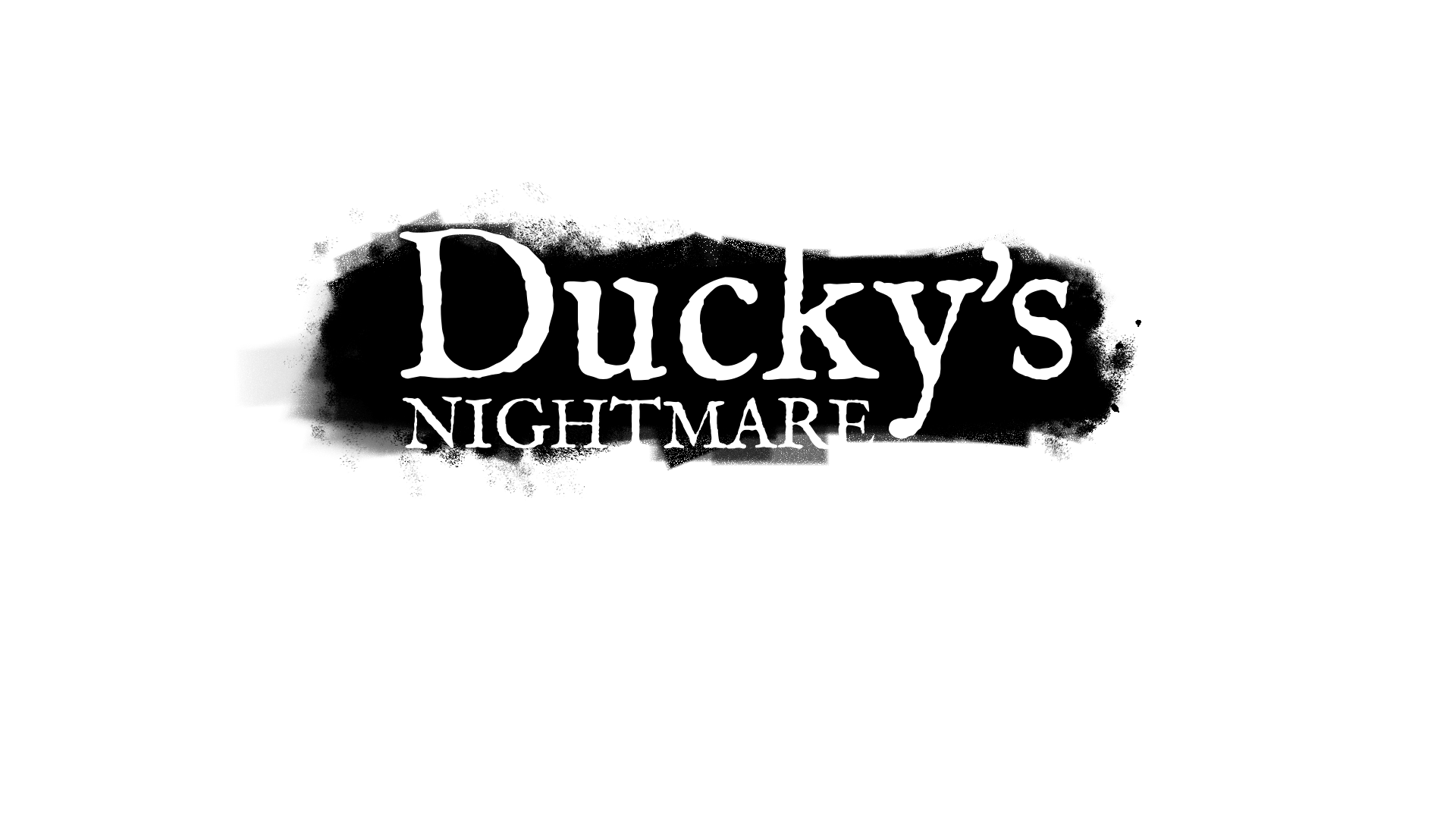
Leave a comment
Log in with itch.io to leave a comment.